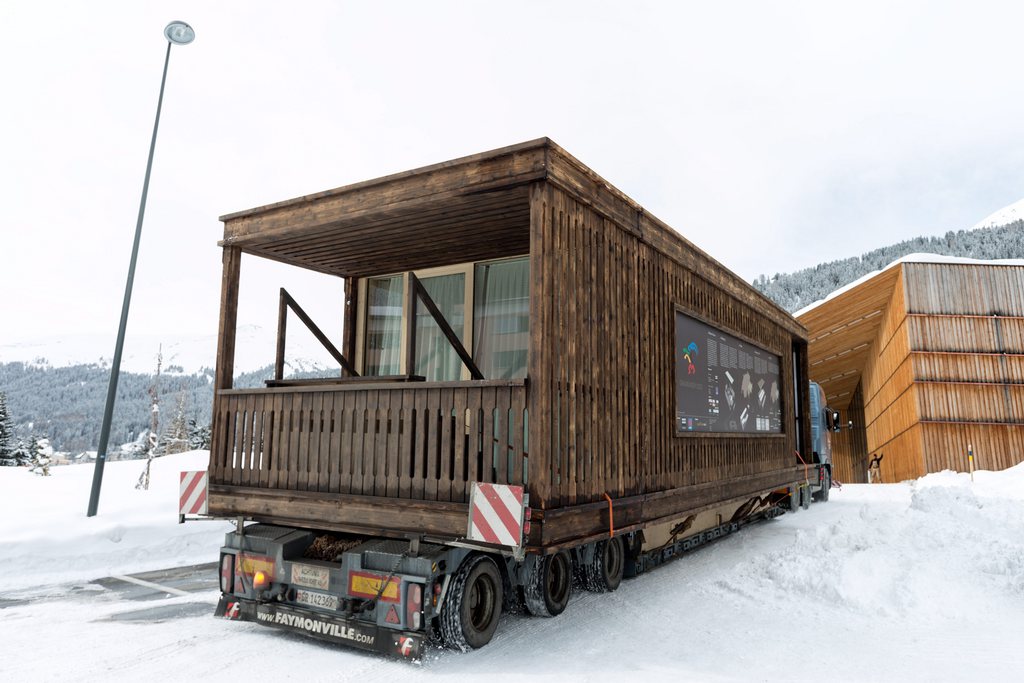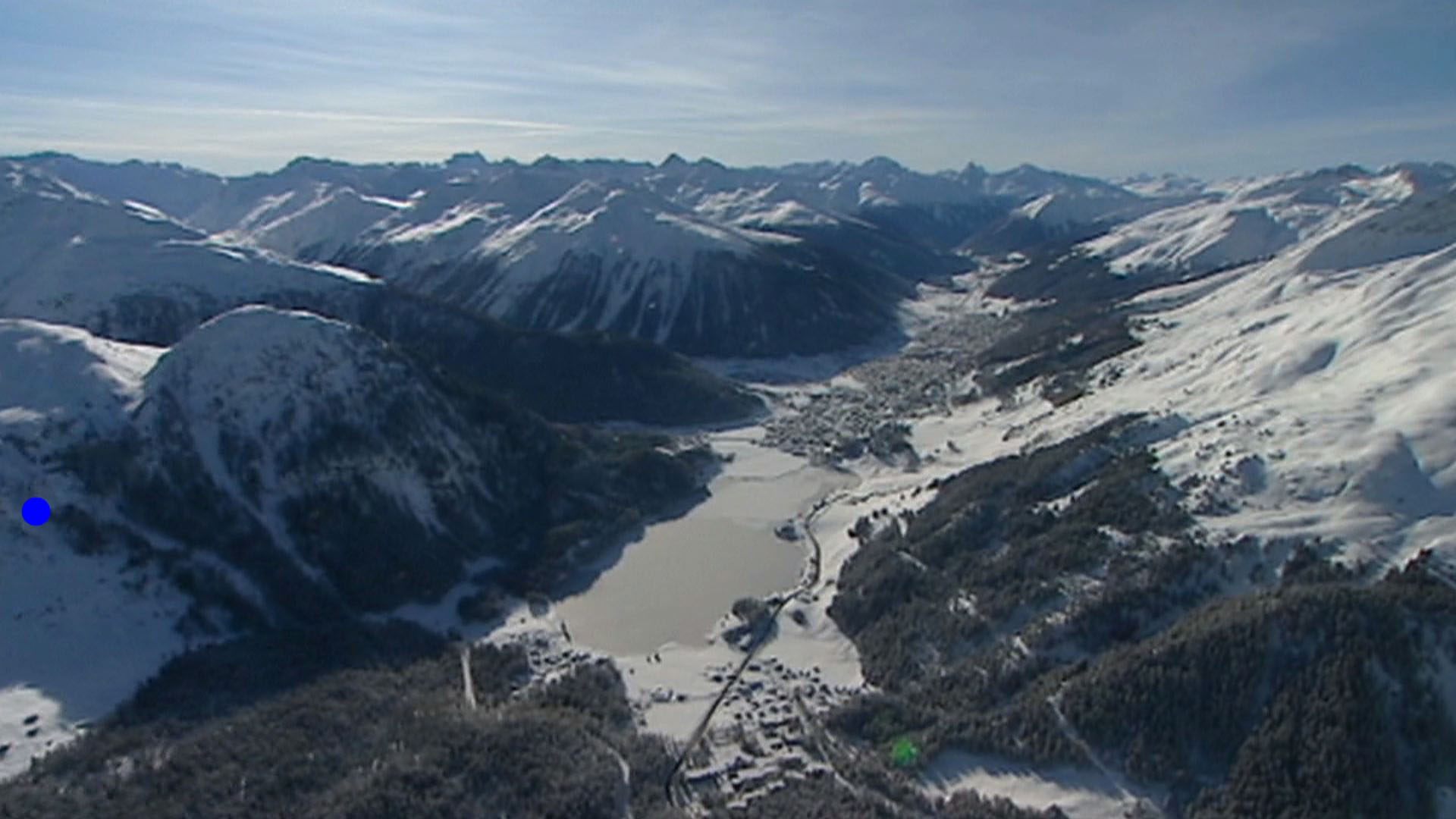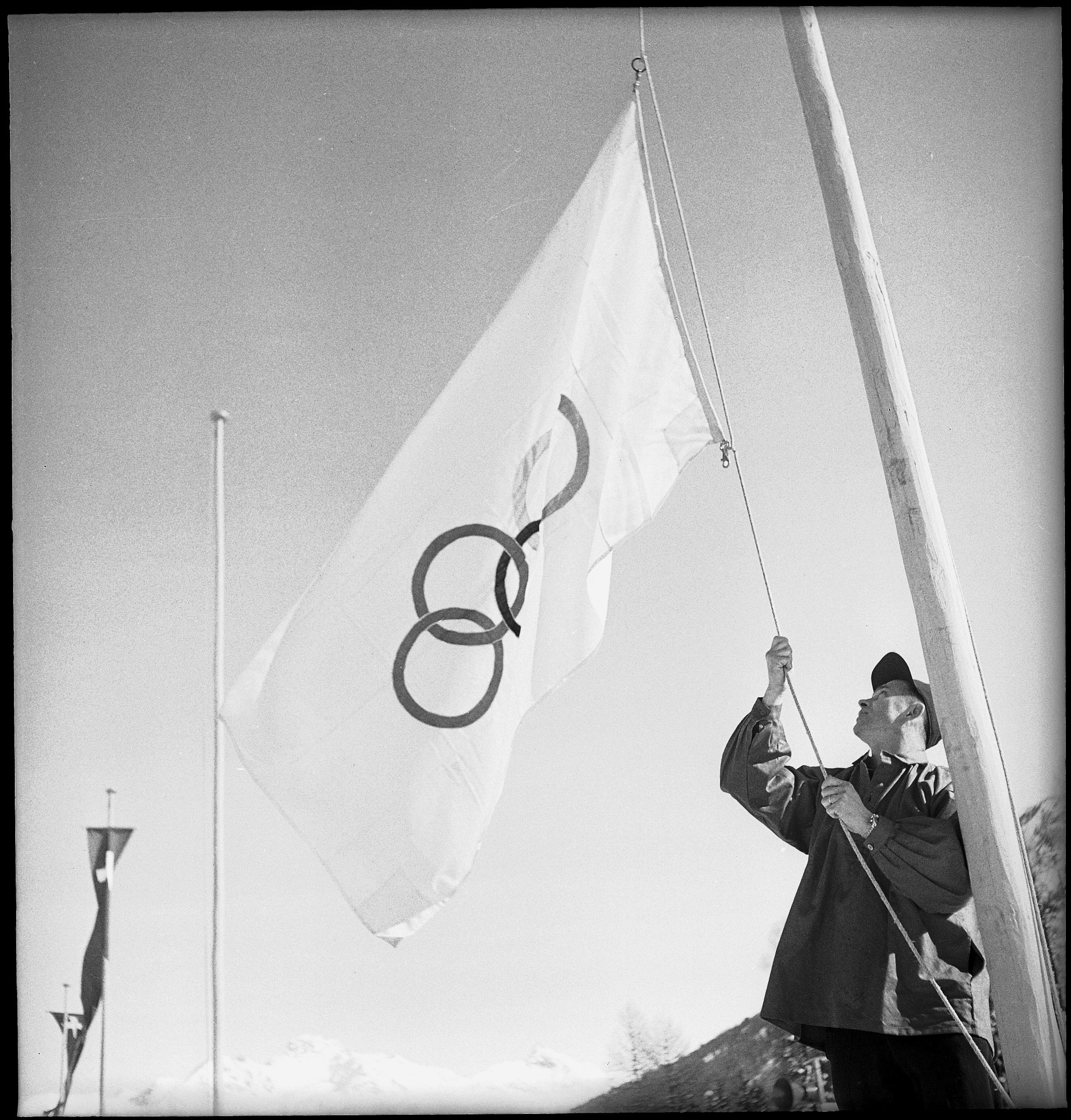Opinions divided on Olympic benefits

Graubünden’s proposed candidacy for the 2022 Winter Olympics has polarised voters who will decide on March 3 whether their canton should put aside CHF300 million ($326 million) so as to be able to host the prestigious event.
Supporters are pushing the idea that the Games will bring sustainable development; opponents say Olympics and sustainability are mutually exclusive.
The Swiss Olympic Association hopes the project will give a new impulse to winter sports disciplines in Switzerland.
The Games, centred on Davos and St Moritz, will respect the countryside and the climate, expand public transport and provide a long term boost for economy and society in a peripheral region – and there won’t be a deficit: That’s what supporters are promising.
The campaigners for the 2022 Graubünden Winter Olympics have also other ambitious goals. The group brings together representatives of the federal and cantonal authorities, of Swiss Olympic, the towns of Davos and St Moritz as well as businesses in the region.
The canton wants the Olympics to help push Graubünden as a winter sports destination in growth markets like Russia, China, India and Brazil, the campaign association’s spokesman Christian Gartmann told swissinfo.ch.
The six million Chinese who go skiing today might perhaps know Davos as the site of the annual meeting of the World Economic Forum, and St Moritz as a luxury resort, “but the fact that they are beautiful areas for sport is not well known,” he says.

More
Building for the Winter Olympics
Reversing the “brain drain”
The promoters have launched the “Sustainability, Innovation and Legacy” association. Its sustainability charter is designed to show how the local population can go on benefiting from stimulus created by the Games for as long as possible afterwards.
Gartmann points to the “brain regain” project as an illustration.
“Almost 80 per cent of young people from mountain regions who go down to the central areas for further training or education, don’t come back for lack of prospects,” he explains.
The idea of “brain regain” is to help them establish new businesses back home.
Submitting candidacy to IOC: CHF60 million, of which the federal authorities pays half.
Investments in infrastructure (buildings and transport): CHF1.5 billion
Operational costs: CHF2.46 billion
Security: CHF250 million.
Total: CHF4.27 billion
Who pays what?
Swiss government: CHF30 million for the candidacy, CHF250 million for security and CHF1 billion for other expenses.
Canton Graubünden and Davos/St. Moritz: CHF300 million
IOC: CHF560 million
Private infrastructure investments: CHF500 million
The remainder is to come from ticket sales, sponsors, the sale of infrastructure after the Games.
(Source: “2022 Graubünden XXIV Winter Olympics“ Association)
Catastrophic
But not everyone is enthusiastic.
Jon Pult, chairman of the Graubünden cantonal group of the Social Democrats, believes the Olympics would be “catastrophic” for the development of Graubünden’s mountain areas. His party, along with other organisations and individuals from the political centre left and green camps have established a “Olympics-Critical Graubünden committee”.
The “enormous paraphernalia” would fill two valleys and enlarge the ecological footprint, Pult told swissinfo.ch.
He describes as “absurd” the claim of supporters that the Olympics are a “great chance for innovation “. He admits that the Olympics of 1928 and 1948 might have been beneficial to Graubünden, or at least to St Moritz, where they were held, but considers it “a delusion” to think that “the challenges of today and tomorrow can be overcome with an idea from the day before yesterday”.
For him, the Olympics and the International Olympic Committee (IOC) are “money-spinners”, which are not designed “to produce sustainability”.
What is really needed are new ideas, and also consistent support for the countless small initiatives that already exist.
Pult sees a lot of potential in expanding winter tourism to make it attractive year-round, in diversifying the economy, in regional projects like nature parks, in new energies and the promotion of innovative organic agriculture.
As far as Pult is concerned, the promoters’ charter is merely full of fine words, but their programme is not in any way legally binding, and indeed has no democratic legitimacy.
“If they were serious, the charter would have been presented at the beginning of the process and a legal basis for it would have been drawn up.”

More
Olympic bid: financial fairytale or nightmare?
Credibility and money
Gartmann says the backers of the sustainability association – again, representatives of the national and cantonal authorities, Davos, St Moritz and Swiss Olympic – enjoy broad-based support and are very credible.
“Both the national authorities and the canton have said publicly that they will withdraw their support for the candidacy if the charter is not implemented,” he assured swissinfo.ch.
But it may be that the decisive factor on March 3 is a completely different matter: money.
A tug-of-war about the state’s deficit guarantee that the IOC demands from the host country made news headlines for several days.
A parliamentary finance committee was adamant that the government should not pay one cent more than the CHF1 billion it has promised. A few parliamentarians even wanted to lower the contribution to CHF700 million.
But Sports Minister Ueli Maurer who has come out clearly in favour of the Olympics plan, has stated that the federal authorities, not the canton of Graubünden, would cover any deficit, even if this exceeded the promised billion – which he thinks is extremely unlikely. Last Wednesday he won official backing from the cabinet.
Hot potato
The last word goes to parliament in Bern, which will not take its decision until after the vote in Graubünden.
The supporters do not believe that the argument is compromising the chances of the candidacy. Gartmann comments that the clash of different opinions is part of Switzerland’s political process.
“It would be more worrying if the voters of Graubünden were made to believe that the canton might not have to make good any possible deficit after all,” he says.
But Pult thinks the opponents are right to be sceptical given that the issue of the deficit guarantee is being thrown backwards and forwards between the national and cantonal authorities “like a hot potato”.
“We have been saying for weeks that Olympics are likely to end up in deficit, and that it will certainly fall to the public sector to make this good.”
The decision of the parliamentary finance committee is a clear sign to the voters of Graubünden, he claims. “By voting no they can spare the country a lot of trouble.”
March 3, 2013: Voters in Graubünden decide whether the canton should set aside a SFr300 million reserve from its own assets to host the 2022 Winter Olympics.
If they vote in favour the International Olympics Committee (IOC) must be informed of the official candidacy by November 14.
The application file, containing an overview of the project, must be submitted by March 2014.
This file must also include the state’s budget guarantee.
An IOC assessment committee will reduce the candidates to a short-list of three to be announced in July 2014.
The announcement of the 2022 host will be made on July 31 2015.
(adapted from German by Julia Slater)

In compliance with the JTI standards
More: SWI swissinfo.ch certified by the Journalism Trust Initiative

You can find an overview of ongoing debates with our journalists here. Please join us!
If you want to start a conversation about a topic raised in this article or want to report factual errors, email us at english@swissinfo.ch.